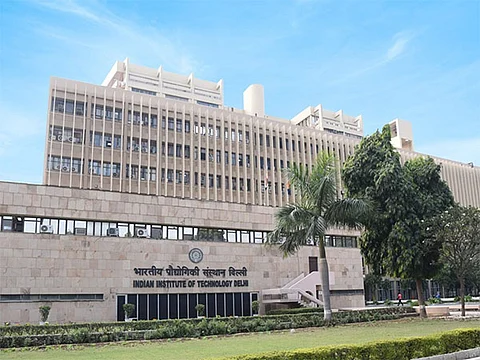

For decades, the Indian Institute of Technology Delhi has stood as one of the most sought‑after addresses for higher education in the country. Its Department of Management Studies (DMS), in particular, draws working professionals from across India eager to marry industry experience with rigorous research. For many, including Amit (name changed), the attraction was clear: the research infrastructure, and the promise that an IIT Delhi PhD could open doors no other credential could.
At the time Amit first applied, the institute’s admission brochure for the semester said that part‑time PhD aspirants needed just two years of work experience — a bar he had thought he comfortably cleared, with five years in the corporate sector under his belt.
But over the next two admission cycles, he would discover that his dream had come up against an unexpected barrier: the Department of Management studies had seemingly started enforcing a far higher threshold for the work experience requirement quietly, without any public announcement or explanation.
When Amit's first application did not make the cut, he had chalked it up to competition. It was only after he failed to get in during the next admissions cycle that he found something alarming.
During the shortlisting stage, he noticed that the DMS’s website specified a minimum work-experience requirement of eight years. Still, he chose to believe it was only a temporary measure, that the department might lower the bar again in the following cycle, and that with his six years of experience he could yet find a place.
But as the months went on and the criteria remained unchanged, that hope began to feel misplaced. What Amit and other applicants had taken as a passing adjustment was, in fact, the start of a new normal, one that left them scrambling for clarity on whether the door in front of them had quietly closed to all but the most seasoned professionals.
To understand when and how the shift had occurred, EdexLive turned to the Wayback Machine, a digital archive that preserves historical snapshots of web pages. By checking archived versions of the DMS admissions page, we were able to trace the evolution of the eligibility criteria.
On April 21, 2024, barely a month after Amit's first application, the page already listed a five‑year minimum for part‑time PhD aspirants. Amit had been unaware of this at the time.
On August 3, 2024, the archived page still showed the five‑year rule.
By January 14, 2025, the bar had been raised further to eight years.
Meanwhile, the overall IIT Delhi admissions brochure each semester never budged from its two‑year requirement. For applicants, this meant entering a process under one expectation, only to discover much later that the real criteria were very different.
Earlier this month, 13 applicants signed a collective email to the Head of DMS. The letter asked the department to reconsider the sudden hike, calling it “a significant barrier for aspiring researchers, especially early to mid‑career professionals.”
The PhD Admission Office at DMS replied a few days later, acknowledging the concern but standing firm:
“The shortlisting criterion regarding work experience at DMS has remained the same for several admission cycles. IIT Delhi sets the base eligibility, and each department may define additional criteria based on its academic needs.”
The office added that such criteria were “reviewed and approved by the department committee for each admission cycle.”
For Amit, this stance only deepens his frustration. “We respect their autonomy,” he told us, “but why not communicate it clearly from the start? The rest of the IITs and IIMs keep it at two years. Outside IITs, many universities don’t require any experience beyond a simple no‑objection certificate from your employer. Why is DMS making it nearly a decade?”
The practical effect of the change is stark. Consider Amit's colleague Aditya, whom he describes as “an amazing talent.” With just two years of experience, Aditya now faces the prospect of waiting another six years before he can even apply.
“By the time he qualifies, he could have finished a PhD elsewhere,” Amit notes, adding that “If they had kept it at four or five years, at least there’s a level playing field. But eight years… it’s almost a decade of your life gone!”
As of the time of writing, IIT Delhi has not responded to EdexLive’s request for comment. The copy will be updated once we receive a response from them.
